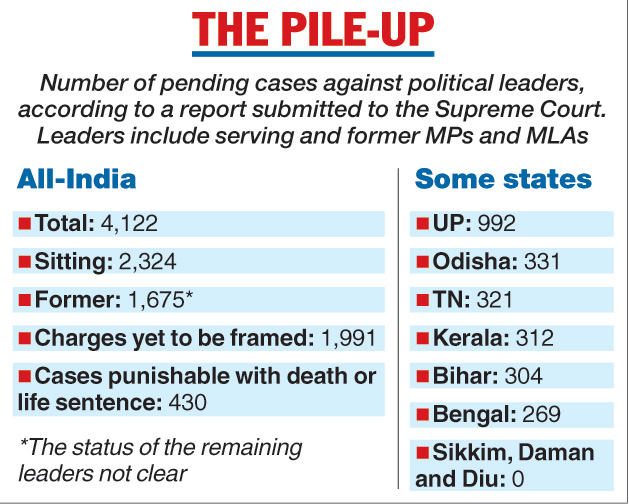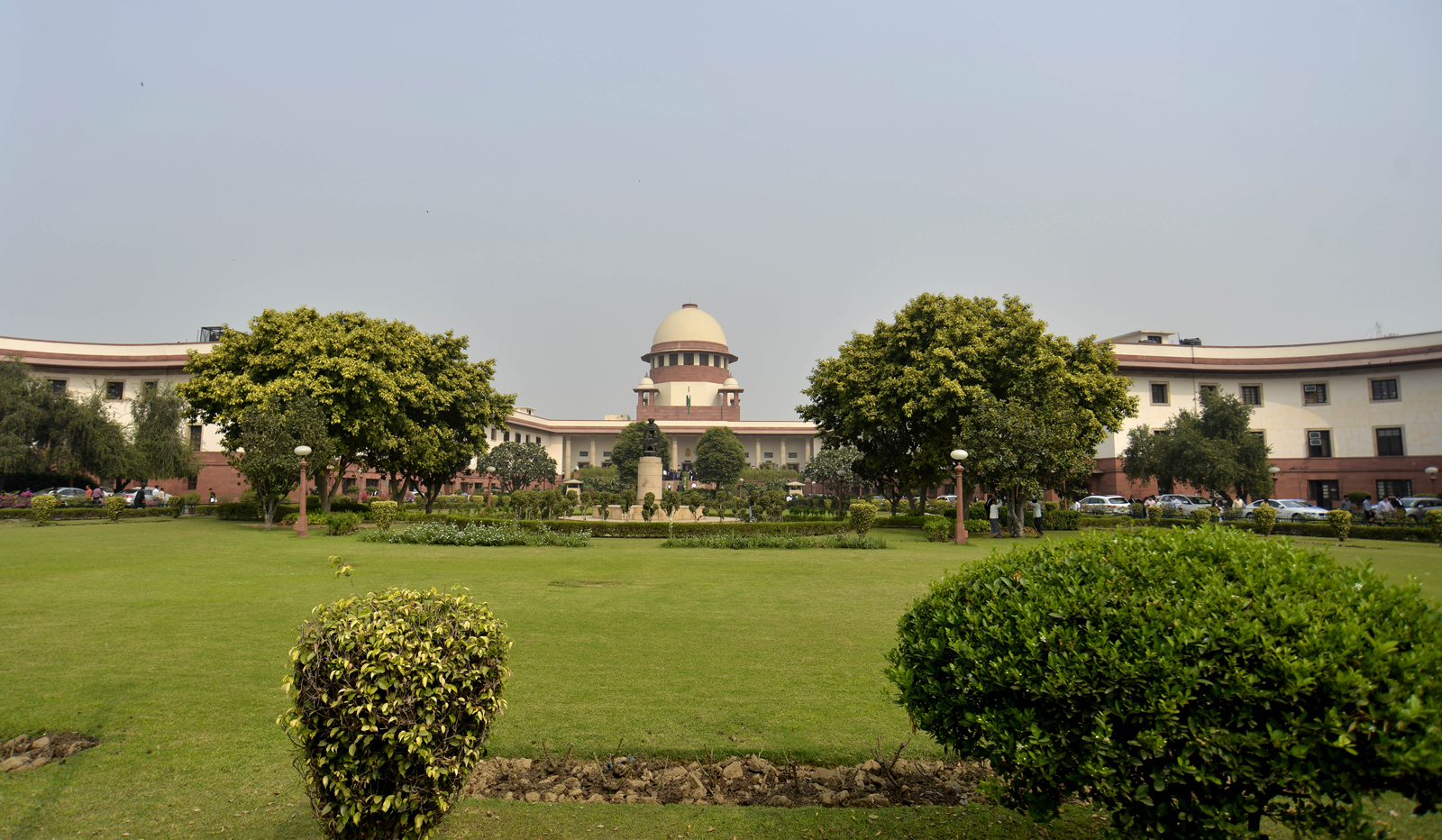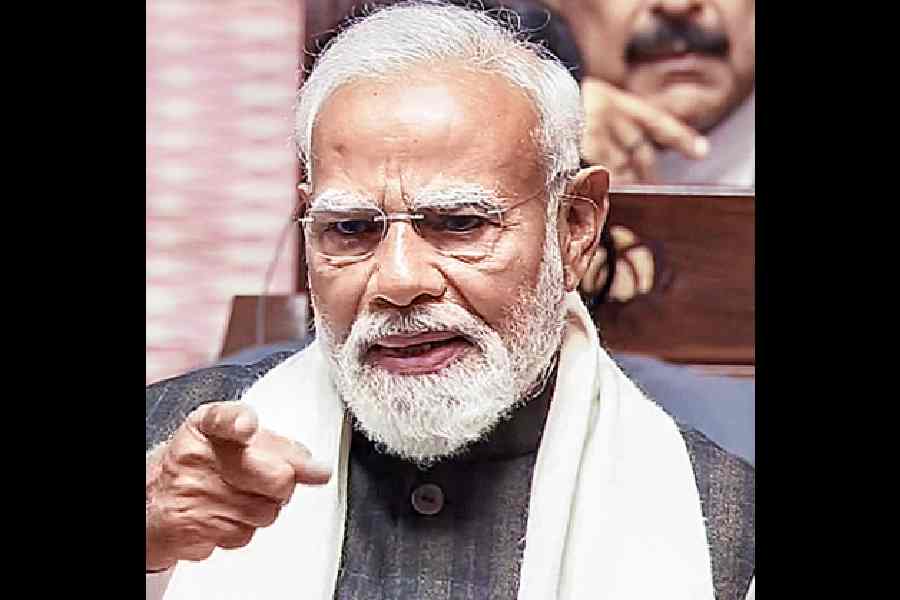The Supreme Court has said the designated courts in districts in two states where a pilot project will be launched on expediting cases against serving and former legislators should submit a monthly report to the high court.
“The designated courts in the districts in the aforesaid two states of Kerala and Bihar will submit monthly report to the high court with regard to the cases where chargesheets have not yet been filed; cases where charges have not yet been framed giving reasons… and the progress of the trial where the cases are ready,” the apex court said while posting the matter for December 14.
The bench of Chief Justice Ranjan Gogoi and Justices Sanjay Kishan Kaul and K.M. Joseph issued the directive to the designated courts on the basis of a report drawn up by two lawyers who assisted the court.
Senior advocate Vijay Hansaria, appointed amicus curiae, and advocate Sneha Kalita, who assisted him, on Tuesday placed in the court data on the pending cases against serving lawmakers and former legislators. (See chart)
Till now, such cases were being tried in 12 special courts set up earlier this year in Bengal, Andhra Pradesh, Bihar, Karnataka, Madhya Pradesh, Tamil Nadu, Telangana, Uttar Pradesh, Maharashtra, Kerala and Delhi (two courts in the national capital).
Hansaria suggested that in order to expedite the trial against the leaders each district must have one sessions court and one magistrate’s court as designated special courts. Sessions courts deal with offences that involve imprisonment of two years and above while magisterial courts can impose jail sentences of up to two years.
The court added to the proposal. “Instead of designating one sessions court and one magisterial court in each district, we request each high court to assign/allocate criminal cases involving former and sitting legislators to as many sessions courts and magisterial courts as each high court may consider proper, fit and expedient,” the Supreme Court said.
The amicus curiae suggested designated courts give precedence to cases involving grave offences and sitting legislators. Two sitting chief ministers — Amarinder Singh of Punjab and H.D. Kumraswamy of Karnataka — are among those who have cases pending against them. Former Karnataka chief minister B.S. Yeddyurappa also figures on the list, as does serving Kerala minister M.M. Mani.
But the top court, which accepted most of the suggestions, said there should not be any segregation on the basis of the elected status of politicians.
“At this stage, we are of the view that the above directions should be made applicable to cases involving former and sitting legislators in the states of Bihar and Kerala…. Rest of the special courts already set up shall continue to work and try cases assigned… until further orders are passed in this regard by this court.”

The Telegraph










